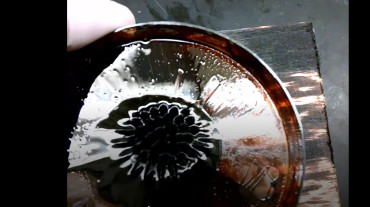Research Overview

As part of our outreach efforts, a week-long summer "nano-camp" was held where middle school students were introduced to the nano-chemistry world. They learned to synthesize nanomaterials including pigments, sensors, and magnetic nanocomposites for environmental pollution cleanup.
Latest Events
Maddie and Drew graduate!
7 May 2022Drew and Evan present their research at the RU Student Engagement Forum
21 Apr 2022Maddie presents her research at the ACS National Meeting in San Diego
20 Mar 2022
Recent Projects




Research
Undergraduate research in our lab is open to students at all levels and we also frequently mentor high school students.
All presentations and publications are a result of the work done in our laboratory at Radford University by undergraduates and shows that through hard work and dedication, high quality science can be accomplished even at the undergraduate level.
Our students have entered a number of research competitions and have won many awards including “best presentation" awards at all levels and have garnered over $100K in external funding to support their research.

Biography
Dr. Webster teaches general and physical chemistry as well as electronics for scientists and a number of other special topics classes. He earned a Ph.D. from Virginia Tech and his research interests are related to chemistry’s role in sustainability including the development of novel nano-materials derived from renewable resources.
